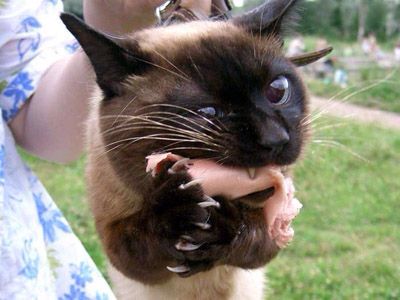Hot dogs are a popular snack around the world. Easy to prepare and tasty enough to leave you licking your fingers, we don’t blame you for indulging yourself.
Now comes your cat. An obligate carnivore who survives on meat, how can they possibly ignore the meaty goodness? To add more reasons for them to be attracted to hot dogs is that cats are oddly attracted to both the color red and also to round and conical shapes. It is almost as though hot dogs were designed for cats to eat.
So you wonder, what harm would it do if you slip your feline a bite of your hot dog. At least it will stop them from bugging you while you enjoy your meal. Even if you don’t plan to offer your cat a bite, they seem to help themselves and steal away a piece of the meat while you aren’t looking. However, you aren’t concerned because it’s just a bit of meat, and cats need the protein that comes from meat so it’s probably no big deal. Right?
Unfortunately, you’re not entirely correct in your conclusion about cats and hot dogs. In fact, it is actually suggested that cats be kept away from meaty meals. Which is probably surprising for you and has left you wondering why? We’re here to answer exactly that.
What do cats eat?
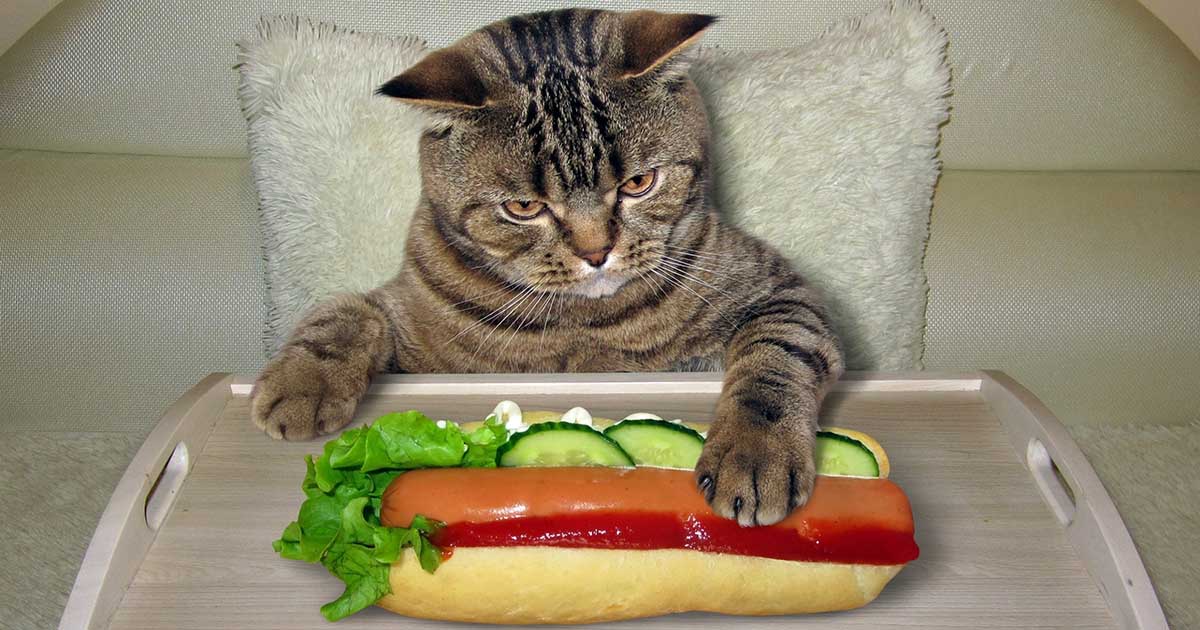
You were right about cats being obligate carnivores which means that their sole source of nutrition is animal protein. They don’t require any fruits or vegetables to be a part of their diet.
But hot dogs have meat too?
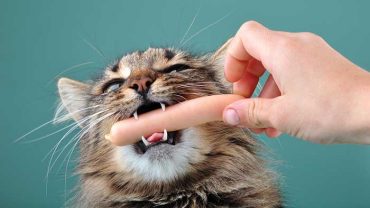
That is true. The sausage used in hot dogs is indeed meat and thus should be counted as protein for our cats. But that’s not the problem. The problem with hot dog meat is that it is not fresh meat. The meat used in hot dogs is processed meat and is nothing close to what makes up a cat’s natural diet. The only beings that can eat and digest processed meat are humans and even then it is not something that is recommended that we eat.
Cats, on the other hand, are supposed to eat fresh or raw meat. What about the canned food that is commercially available? That canned food has good enough moisture content that serves as a good source of nutrition for our feline friends and has been developed specifically keeping their needs in mind.
The problematic ingredients in hot dogs:
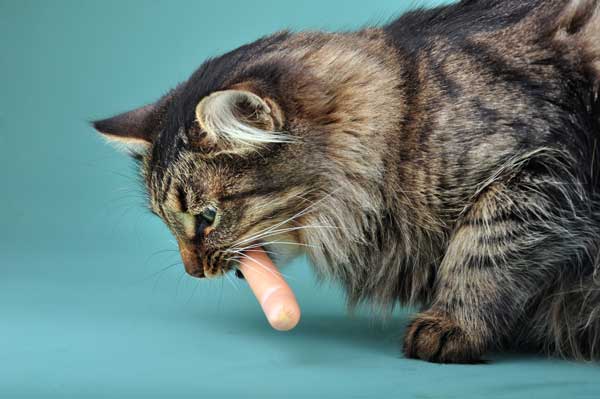
Sodium:
Hot dogs have a high amount of sodium present in them. If large amounts of sodium are present in your cat’s diet then that can cause them to become increasingly thirsty and constant intake of water will lead to numerous trips to the litter box. Added to this, sodium poisoning can lead to loose stool, vomiting, and can even cause dehydration in your feline friend. This is why cat food has little salt present in it.
Signs of sodium poisoning in cats can include tremors, depression, seizures, and high body temperature. If not treated, sodium poisoning can turn out to be fatal.
Nitrates:
Although the amount of nitrate present in hot dogs depends on the brand, nitrate, in general, is a big no-no for cats. Again this is not something that is a part of your cat’s natural diet, domesticated or otherwise and so their bodies will reject their foreign material.
Too much nitrate is also harmful to humans as well. Nitrate in the limited acceptable amount converts to ammonia and the rest then begins to accumulate in the bloodstream causing a bunch of health problems.
Fat Content:
Another reason why hot dogs are not suitable for cats is the high amount of fat present in them. Cats need to eat lean meat and so the unnecessary fat present in hot dogs will cause unnecessary weight gain that could lead to obesity which in turn will decrease the quality of your cat’s life.
Fat content is not just a problem linked to hot dogs in particular but human food as a whole. What may be considered normal amounts for humans may be too much for cats since our body systems vary substantially.
Moreover, since it is difficult for your cat to process and digest high amounts of fat, they will end up constipated.
Meat Trimmings:
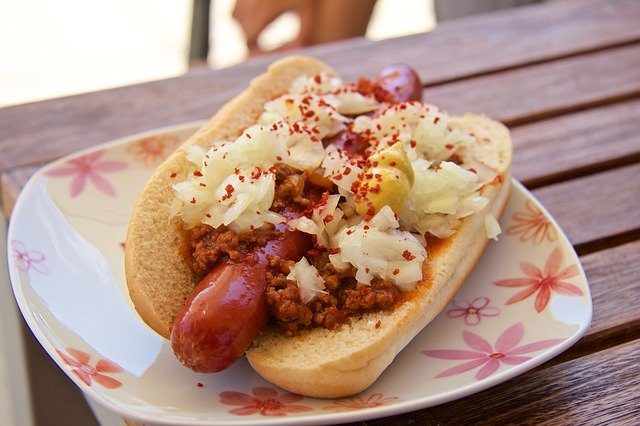
Hot dogs are usually made of meat that is separated mechanically or is prepared from pink slime or meat slurry. Now, there’s nothing wrong with hot dogs at this point. However, after the hot dogs are cooked they have to be heated at least at a minimum temperature of 75°C to be consumed and this is where things start going south. When food is subjected to ultra-high temperatures, there are two outcomes. Firstly, they lose, if not all then most, of their nutritional value. Secondly, this much heat can cause the food to be contaminated with toxic substances such as metals.
These are just two reasons why eating processed foods is discouraged not just for cats but for their human owners as well.
Toppings:
As if plain hot dogs weren’t problematic enough for cats, if you add toppings to your hot dog and are offering that to your cat, that’s even worse. Ketchup and mustard have no place on a cat and neither do pickles or onions. All of these foods are just going to cause pain to your cat in the long run.
Does beef or chicken make a difference?
It really doesn’t. Irrespective of what kind of meat is being used it is still processed and processed meat is a huge no for your cats.
Conclusion:
By now you’ve probably understood that you need to keep your cat away from hot dogs. The way to keep your sanity while eating hot dogs is to make sure your cat has their favorite food ready for them that day. You can even offer them a catnip to keep them happy.
